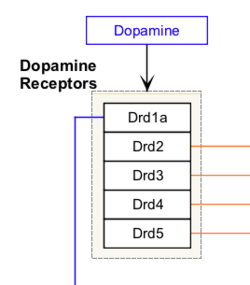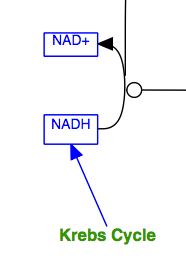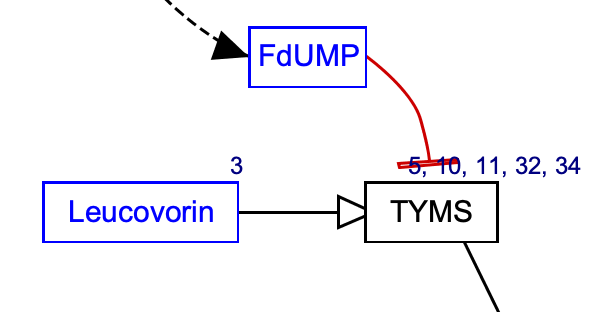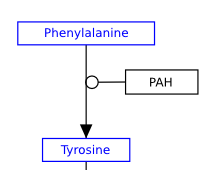Help:Guidelines EditorPalette
From WikiPathways
(→Line) |
(→Line) |
||
| Line 112: | Line 112: | ||
==== Line ==== | ==== Line ==== | ||
Lines can be used to denote cellular structures such as membranes. | Lines can be used to denote cellular structures such as membranes. | ||
| + | |||
| + | |||
| + | [[Image:Line1.png|border]] | ||
==== Arc ==== | ==== Arc ==== | ||
Revision as of 22:19, 5 May 2014
This guide describes the recommended uses of the most commonly used elements of the WikiPathways editor palette. Examples are taken directly from the WikiPathways archives. If you have questions about specific cases, contact the discussion mailing list.
Interactions
Line / Arrow
The solid line and arrow are used to denote a variety of processes, including conversion, translocation, activation, binding and modification.
| Enzymatic conversion | Receptor binding | Translocation between compartments | Activation by cAMP |
|---|---|---|---|

| 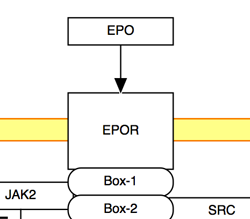
| 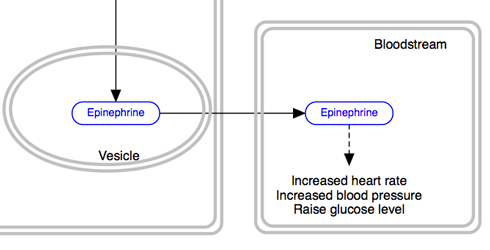
| 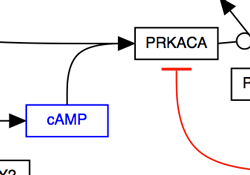
|
Dashed line / dashed arrow
The dashed line and arrow are used to denote an uncertain process or a process that involves additional steps not outlined in the current diagram.
| Multi-step process without details |
|---|

|
T-bar
The T-bar is used to denote inhibition.
| Inhibition by transcriptional regulation |
|---|

|
Line types
Any interaction can have a line style of either straight, curved, elbow or segmented. The default style is straight, and is shown in the examples above. The other three line styles are used primarily to increase readability of complex pathways.
| Curved | Elbow | Segmented |
|---|---|---|
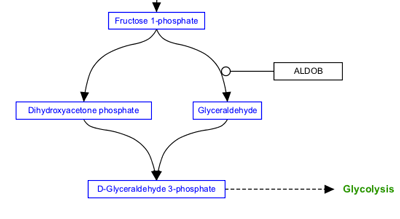
| 
| 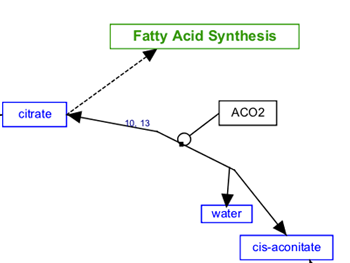
|
Interactions - Molecular Interaction Maps (MIM)
The WikiPathways editor includes a set of MIM interaction types, based on the Molecular Interaction Maps notation.
Necessary stimulation
Binding
Conversion
Stimulation
Catalysis
Transcription-Translation
Data nodes
- GeneProduct: Default data node and used for any gene product.
- Metabolite: Used for any metabolite, drug or small molecule.
- Pathway: Used instead of a label to denote a connection to another pathway.
- RNA: Used for any data node that represents RNA, for example miRNA.
- Protein: Can be used as a more specific way of denoting protein gene products.
| GeneProduct, Metabolite, Pathway | RNA | Protein |
|---|---|---|

| 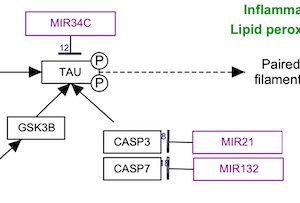
| 
|
Graphical elements
Graphical elements are purely graphical, meaning they do not have a meaning in the network graph that defines nodes and interactions.
Label
Labels are used to describe locations, entities, processes or context:
| Labels used to indicate cell type and event | Labels used to describe complexes |
|---|---|

| 
|
Line
Lines can be used to denote cellular structures such as membranes.
Arc
Rectangle
Cellular compartments
Cellular compartment shapes are used to specify the cellular location of processes. Using the defined cellular compartment shapes also ensures that this information is encoded in the gpml.
| Cell | Nucleus | Vesicle |
|---|---|---|
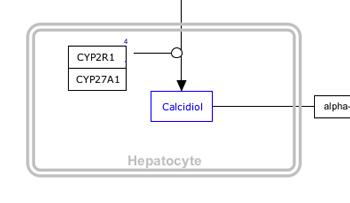
| 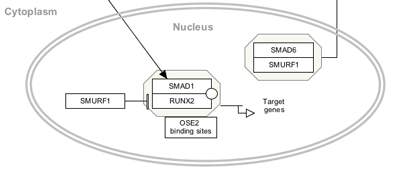
| 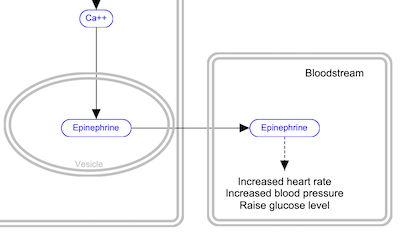
|

